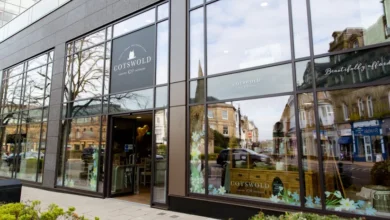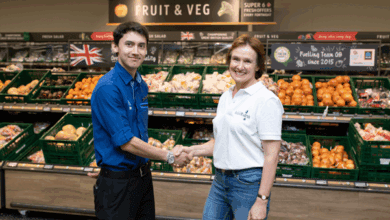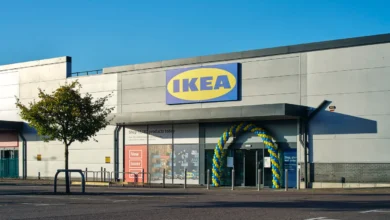24 million will skip Valentine’s Day gifting
Love is certainly not all around for retailers, as new research from customer experience marketing agency Gekko suggests that more than half of UK adults are not going to buy gifts this Valentine’s Day. Daniel Todaro, MD at Gekko, explains.

Register to get 1 free article
Reveal the article below by registering for our email newsletter.
Want unlimited access? View Plans
Already have an account? Sign in
Valentine’s Day has traditionally been a retail bonanza for retailers as spouses, partners and would-be lovers demonstrate their affection with cards and gifts – but are retailers now carrying a torch for something that no longer exists?
Of course, Valentine’s Day remains, but 54 per cent of UK adults have no plans to buy anything for significant others, friends or family. Even amongst those in relationships, only three in five will buy something for their partner – whether that’s a card, physical gift, dinner or an experience. With that in mind, retailers are now competing for a smaller piece of a heart-shaped pie.
Whether it is the rising cost of living or a shift in the way we view Valentine’s Day, consumers are no longer splashing out to impress the objects of their affections. Only 13 per cent of those planning to buy a gift will spend more than £50, with a third expecting to spend £20 or less – which will come as bad news to retailers of big-ticket items.
Young love leads the charge:
Given the strict competition, retailers need to make sure they are targeting the right consumers. While over 35s can command higher salaries, it is actually young lovers that are most likely to celebrate Valentine’s Day. In fact, they are more than twice as likely to buy cards, gifts and experiences for loved ones as over 55s.
It is not only important to understand who is doing the buying, but also who they are buying for. The meaning of Valentine’s Day is shifting, and many people are now buying for anyone they would be prepared to say those three little words to. Amongst under 35s, nearly three in five agree that it is important to mark the day with those you love, including friends and family.
Consumers fall out of love with physical gifts:
While more recipients are part of the Valentine’s Day picture than ever before as a result of societal shifts, we can also see how the push back against consumerism and sustainability concerns might be playing a role. They say love will find a way, but that way no longer includes physical gifting – and preferences for gifting experiences come to the fore.
Nearly two in five say they prefer to give experiences over physical gifts, which might include taking a loved one out to dinner, going to a gig or giving a more unusual experience like wine tasting or bungee jumping. More than two-thirds say they dislike the consumerism associated with Valentine’s Day and other gifting moments, and moving away from the traditional route of a card and a gift is one way to address those concerns.
The low-waste lifestyle could also be playing a role here. According to an article by Business Waste, an extra nine million kilograms of carbon dioxide are produced due to the waste Valentine’s Day creates every year. From the 25 million non-recyclable (or non-recycled) cards and imported flowers that are sent and given, to discarded ‘novelty’ gifts and special red packaging, there are a lot of reasons why consumers might prefer to give something a little less tangible.
Becoming a match made in heaven
With three-quarters of people agreeing that retailers put too much focus on Valentine’s Day, and fewer people giving gifts, retailers may need to reframe their strategies without denting their bottom lines. While 25 per cent of consumers agreed that discounts would encourage them to spend on physical gifts, this could result in a race to the bottom.
At a time when the retail sector has faced struggle after struggle, it is critical that we find ways of making Valentine’s Day work harder for the sector, to win the hearts and loyalty of the consumers we rely on – and customer experience has a big role to play.
At Gekko, we support retailers to improve the customer experience they provide and drive differentiation, and from our experience we know that retailers should consider whispering different sweet nothings into lovers’ ears. Product personalisation and limited edition products both rank highly amongst things that would encourage consumers to buy a physical gift for Valentine’s Day – especially with the under 35s that make up the majority of the market.
By focusing on insights like these, retailers can relight the fire for gifting and gain the competitive advantage. And maybe we should take a page out of these lovers’ books, and gift them with the best possible experience to win them over.






